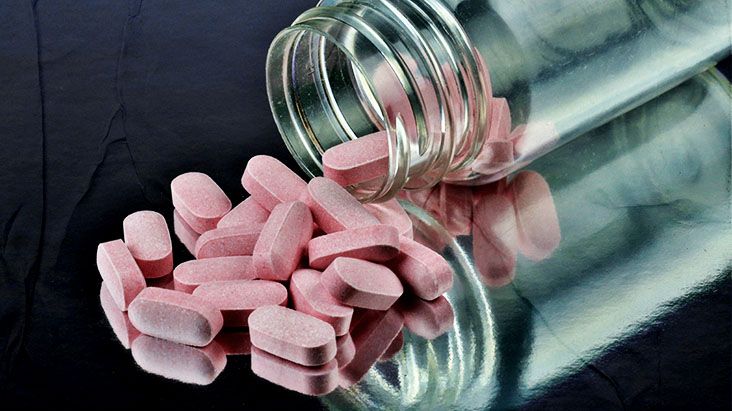Pernicious anemia is an autoimmune condition in which the body cannot absorb vitamin B12 properly. A person with pernicious anemia requires lifelong vitamin B12 supplementation.
Vitamin B12 is essential for various bodily processes, including the ability to think, produce energy, and keep the nervous system functioning.
Pernicious anemia can lead to vitamin B12 deficiency. Treatment involves regular supplementation of the vitamin.
This article examines the link between vitamin B12 and pernicious anemia, including the differences between pernicious anemia and vitamin B12 deficiency. It also explains the treatment for pernicious anemia and how to get enough vitamin B12.

The treatment for pernicious anemia involves regular injections of vitamin B12, which a doctor will
A person with pernicious anemia requires medical treatment. Affected people cannot cure or manage the condition at home by taking over-the-counter (OTC) vitamin B12 supplements or eating foods rich in vitamin B12.
This is because pernicious anemia is not simply a vitamin B12 deficiency but an autoimmune condition that prevents the body from absorbing vitamin B12 in the gut, even when it is available.
The body then uses vitamin B12 for various functions,
In a person with pernicious anemia, the immune system mistakenly attacks the cells that produce the intrinsic factor. Antibodies form against these cells and the proteins themselves, leading to inflammation.
The cells in the stomach cannot produce enough intrinsic factor due to the inflammatory immune response.
Since there is not enough intrinsic factor for vitamin B12 to bind with and it cannot travel to the distal ileum to absorb into the blood, the body cannot absorb vitamin B12 properly.
The inability to absorb vitamin B12
- fatigue
- glossitis, which causes changes in the size, color, and texture of the tongue
- shortness of breath
- a loss of appetite and weight loss
- cognitive decline
- imbalance
- numbness
- heart palpitations
- diarrhea
- depression
- mood changes
Pernicious anemia is an autoimmune disorder
Researchers do not know the exact causes of the disorder. However, risk factors include:
- a family history of pernicious anemia
- a family history of other autoimmune disorders, such as vitiligo and Addison’s disease
- being female
- older age
Pernicious anemia is a common cause of vitamin B12 deficiency. The condition typically develops gradually and may cause clinical vitamin B12 deficiency within
Vitamin B12 deficiency occurs when a person does not absorb enough vitamin B12. There are various potential causes of vitamin B12 deficiency besides pernicious anemia, which
- gastrointestinal surgery
- long-term use of certain medications, such as proton pump inhibitors
- genetic intrinsic factor defects
- dietary deficiency
Pernicious anemia requires lifelong treatment.
Treatment usually begins with an intensive phase, in which a healthcare professional administers
During the next phases of treatment, a healthcare professional will administer weekly vitamin B12 injections for 1 to 2 months then injections either monthly or every 2 to 3 months.
A person will continue to receive intramuscular vitamin B12 injections, or a doctor may suggest high dose oral vitamin B12 supplements. A person must continue with treatment for the rest of their life to manage the disorder.
People with pernicious anemia are
The disorder prevents the gut from absorbing the vitamin, which means that even if a person eats foods containing vitamin B12, their body cannot use it.
Affected people, therefore,
People without pernicious anemia or another underlying cause of vitamin B12 deficiency can
Various animal-based foods naturally contain vitamin B12, and manufacturers may fortify some plant-based foods with it. Sources of vitamin B12 include:
- meat, particularly beef liver
- poultry
- fish, particularly oysters and clams
- eggs
- dairy products
- fortified products, such as some breakfast cereals and nutritional yeasts
Recommended amount
The
| Life stage | Daily recommendation |
|---|---|
| birth to 6 months | 0.4 mcg |
| 7 to 12 months | 0.5 mcg |
| 1 to 3 years | 0.9 mcg |
| 4 to 8 years | 1.2 mcg |
| 9 to 13 years | 1.8 mcg |
| 14 to 18 years | 2.4 mcg |
| adults | 2.4 mcg |
| pregnant people | 2.6 mcg |
| people who are breastfeeding | 2.8 mcg |
Pernicious anemia is an autoimmune disorder in which the immune system mistakenly attacks healthy cells in the stomach.
The condition prevents the absorption of vitamin B12 in the gut, which can cause vitamin B12 deficiency.
Vitamin B12 deficiency can cause various severe health complications. A person with pernicious anemia requires lifelong vitamin B12 treatment, which typically involves regular intramuscular injections.
